- Home
- Franklin W. Dixon
Mystery of the Samurai Sword Page 4
Mystery of the Samurai Sword Read online
Page 4
One rider wore the special helmet and insignia of the Gung-Ho motorcycle gang. “Watch that guy,” Biff warned Frank. “He’s Lenny Boggs, the head of the gang, and I’ll bet he’ll pull every dirty trick in the book!”
“Thanks for telling me,” Frank murmured. “I’ll keep an eye open for him.”
Joe, as the one-man “pit crew,” gave the bike a final check. Then Frank took his place at the starting line.
A “rubberband” starting gate had been stretched across the track. At the drop of a green flag, a pin was pulled releasing the gate, and the riders took off with a roar!
Frank found himself bunched among four or five racers, which hampered his performance. As they rounded the first cloverleaf, he gradually moved up among the leaders. In doing so, he smoothly outma neuvered and passed Lenny Boggs.
The gang leader scowled furiously and gunned his machine to top power. Bit by bit he gained ground, then tried to crowd Frank off the course.
The Hardy boy, however, refused to be scared aside, even though they were riding neck and neck. Boggs kept kicking his bike and made threatening passes trying to nudge him over. Instead, Frank concentrated on all-out speed. Once again he began to outdistance the gang leader.
“Okay, wise guy! You’re asking for it!” Boggs shouted.
At this point they were passing among scattered trees, and Frank saw a broken branch hanging down from one of them. A moment later he heard a sharp crack as the gang leader reached up and yanked off the branch.
Boggs gunned his engine to full throttle. From the corner of his eye Frank saw the young hoodlum drawing abreast on his right, trying to crowd him off course, but the Hardy boy refused to let himself be unnerved.
This time, however, Boggs had a new weapon, the broken tree branch. He reached out, trying to poke it in among the spokes of Frank’s front wheel!
“Knock it off!” Frank cried, turning his head. “Are you crazy?”
Not only was Boggs’s trick a flagrant violation of rules and good sportsmanship—it could cause a dangerous accident!
The only way to keep the stick out of contact with his wheel was to give ground and swerve off course to the left. As Frank glanced forward again and veered his handlebars, a gasp of alarm escaped his lips. He was heading straight for a huge oak tree!
6
Flat-Out Finish
There was no time to weigh the odds. Frank had a choice of either crashing into the tree or turning back on course, which would expose him to the original danger of a shattered wheel and a possible high-speed accident!
Frank made a split-second decision. He avoided the tree, but instead of merely turning back on course, he swung hard right. He knew this meant risking a collision with Len Boggs. But by skidding his rear wheel to the left, it would also help keep the spokes out of reach of Boggs’s threatening tree branch.
His move caught the gang leader utterly unprepared. Boggs yelled in fear, dropped the branch, and grabbed both handlebars in blind panic.
The next instant the two bikes collided with a loud crash! Both youths were jolted from their saddles and went sprawling on the ground!
The collision had taken place near the hairpin curve between the first and second cloverleaves, at a point where the course dipped back close to the starting point.
“That dirty rat!” gritted Joe, who had watched the incident. He started off at a run across the open field to help his brother, in case Frank had been injured. Several of the Hardys’ friends followed close behind to offer whatever assistance they could.
Half a dozen members of the Gung-Ho gang also sprinted out from among the spectators and headed for the scene.
Meanwhile, other racers were veering around the two tumbled riders in order to avoid running them over. But Frank and Len Boggs were already scrambling to their feet bruised, scratched, and shaken up but otherwise uninjured.
Boggs glared with rage at the Hardy boy. “You smart punk! You’re gonna pay for this!” he threatened and charged at Frank with his fists cocked.
Frank’s lip curled in scorn. He did not bother to waste breath pointing out that Boggs had brought the accident on himself. Instead, his left fist swung in a whistling uppercut that connected hard with the gang leader’s jaw!
Len Boggs reeled backward from the blow and landed flat on his back, too dazed to collect his wits for the next few seconds.
Without giving his foe another thought, Frank picked up his bike and hastily checked it over. The Gung-Ho‘s, who had seen him knock down their leader, yelled threats and abuse, and ran as fast as they could to stop him.
Frank ignored them. Swinging aboard his bike, which seemed to be in working condition, he toed the shift lever back to neutral. Then he kicked the starter, gunned his engine and roared off in pursuit of the pack!
In baffled fury, the motorcycle gang members turned to pick a fight with Joe and the Hardys’ friends, who were only too willing to oblige. Phil Cohen, in fact, was already swapping punches with one of the leather-belted hoodlums.
Luckily, just then a checkpoint observer, two other race officials and a policeman reached the scene. They forced their way between the two belligerent groups, and managed to stop what might otherwise have turned into a nasty brawl.
Frank saw little of this. He was bending all his efforts toward making up for lost time. The accident with Len Boggs had been a costly interruption. Except for one lagging rider, he was now at the tail of the pack. But the second cloverleaf wound upward along the face of a steep hillside, and his souped-up dirt bike was a good climber.
Yard by yard, Frank closed the gap and regained lost ground. When he was halfway down the side of the cloverleaf, he had already nosed his way forward to the middle of the pack.
The third cloverleaf was the roughest part of the course. The terrain was not only wooded, but dotted with thick patches of brush that forced the marked-out course to zigzag crazily. The ground was bumpy and rutted and was traversed by a meandering, muddy creek which had to be crossed at two points.
Three riders had taken spills on the hillside, and two more went spinning or careening out of action on this third leg of the course.
As the first bikes in the pack came whizzing out from among the trees and into view of the spectators and judges, Joe saw that the leader was the Road King entry. But Frank was only a dozen yards behind and slowly gaining!
“He’s got a chance!” Joe blurted out.
“He’ll make it yet!” said Chet Morton, whose face glistened with sweat and excitement.
“Come on, Frank! Come on!” cheered Iola and Callie, while Tony Prito was literally gnawing his knuckles in breathless suspense.
The other riders were well back, and the race was now clearly between the Road King entry and Frank Hardy as they roared home along the final stretch of the course.
But the miracle was not to happen. As the winner’s front wheel crossed the finish line, and the black-and-white checkered flag came sweeping down, Frank had not yet drawn abreast of his lone opponent!
“What a great ride!” said Joe, rushing forward to hug and congratulate his brother. “I’ll bet you’d have won, if that meathead Boggs hadn’t fouled you!”
“Never mind, I can’t complain,” said Frank, grinning happily as he pulled off his helmet.
“Not after the way you decked him with one punch.” Biff chuckled. “That alone was worth a silver loving cup!”
As further consolation, Frank’s girlfriend, Callie Shaw, awarded him a public kiss.
Later, after a lengthy consultation on the judges’ stand, the meet referee stepped to the microphone and announced:
“Although Dave Stewart, riding the Road King entry, is the official winner, we feel that special recognition should be given to Frank Hardy. Despite a deliberate foul that slowed his time considerably, he refused to give up. As most of you saw, he plunged back into the race and, by a great display of heart and skill, he still managed to achieve a close second place!”
The annou
ncement was greeted with cheers and thunderous applause. Frank was called to the judges’ stand to be photographed with the winner and received a fresh ovation from the crowd.
Later, when the Hardys were strapping the dirt bike into the trailer, Biff joined them.
“Better keep an eye on that creep,” he muttered, nudging Frank.
The older Hardy boy followed Biff’s glance and saw the Gung-Ho leader talking to a tall, hawk-faced, squint-eyed man. From the dirty looks they gave the two boys, it was not hard to guess the subject of their conversation.
Frank nodded thoughtfully. “You’re right, Biff. Maybe I haven’t heard the last of Len Boggs.”
As soon as they had showered and changed at home, Frank called the director of the Palmer-Glade Auction Galleries long distance in New York City.
“I was told by the dancer Warlord that you have an especially fine samurai sword that will soon be placed on auction,” Frank began.
There was a pause. Then the director cleared his throat and replied, “Yes, that was correct.”
Frank was puzzled. “You mean it’s been removed from sale—or already sold?”
“No,” came the reply. “Apparently you haven’t heard the news.”
“What news?”
“Our building was broken into last night and the sword you just mentioned was stolen!”
7
Cat Burglars
Frank’s eyes widened on hearing this unexpected development. He flashed his brother a startled look. “Was anything else taken?” he asked.
“Luckily, no,” replied the voice at the other end of the line. “It appears that whoever did it was interrupted before he or they could snatch anything more.”
“I see.” Frank paused a moment to consider, then said, “This may tie in with a case my brother and I are investigating. If we come to New York, could we check out the details of the break-in?”
“Of course! If you Hardys can do anything to help catch the thieves, we’ll be more than happy to cooperate!”
As Frank put down the phone, Joe exclaimed, “Don’t tell me the sword’s been stolen?”
The older Hardy boy nodded. “You guessed it. Happened just last night.”
“Boy, that sounds like more than just a coincidence, Frank! Satoya disappears—we get a lead that he may have wanted to buy a certain rare sword—and now the sword’s gone too!”
“I agree, Joe. I think the burglary’s worth looking into.”
“Check. Let’s head for New York first thing in the morning.”
Frank and Joe made good time on the highway, and by ten o‘clock they were parking their car in a garage just two blocks from the Palmer-Glade Auction Galleries on the Upper East Side of Manhattan.
Mr. Sanders, the gallery director, proved to be a balding, bespectacled man. He received the boys in his office and called in his security chief to help answer their questions.
“First of all, sir,” Frank began, “just how valuable was this sword?”
“We expected it to bring at least twenty-five thousand dollars at auction,” Sanders replied.
“Wow! That’s a lot of money!” Joe murmured.
“True, but you must remember—Japanese swords have the finest blades ever produced, and many are exquisitely decorated. Today they’re increasingly sought after by Western collectors.”
“How was the robbery discovered?” Frank asked.
“Quite by chance,” the security chief said. “A police scout car happened along about 3:00 A.M., and the officers spotted a hole in the pane of a third-floor window. We keep a guard on the premises at night, but by the time he answered their knocks and then rushed up to the third floor to investigate, the thieves had escaped.”
“You have an alarm system?” put in Joe.
“We sure do. Had the window been forced open, the alarm would have gone off. But this job was pulled by a pro—or pros. Part of the pane was cut out, using tape to keep the loose glass from falling and making any noise. Then whoever did it reached inside and disconnected the window alarm.”
Frank turned back to the gallery director. “We’re investigating the disappearance of that Japanese businessman you may have heard about—Takashi Satoya, the head of the Satoya Corporation. We were told he was probably planning to buy the sword that was stolen from you last night. Can you tell us if that’s true?”
Sanders frowned and toyed with a bronze paper-weight on his desk. “You must understand, our business requires us to be very discreet. Many customers will only deal with us because Palmer-Glade guarantees that no information will be given out about them and their bids or their purchases.”
“We understand, sir. All we’re trying to find out is whether there may be any connection between your burglary and what happened to Mr. Satoya.”
“Let me put it this way,” the gallery director said after a brief silence. “We did receive a cabled bid from Japan.”
“Any name?” Frank pursued.
“No. Just a cable address to which we were asked to send our reply. But for various reasons, I believe the offer may have come from Satoya.”
“Mind telling us how much was bid?” Joe asked.
“Forty thousand dollars.”
Joe whistled in awe. “But you didn’t accept?”
The director shrugged. “It wouldn’t have been ethical. We had already advertised the sword for auction, so we could not back out.”
“Do you by any chance have a picture of the sword that we could see?” Frank queried.
“Matter of fact, I do. We had one made for our sale catalog.” Mr. Sanders plucked an eight-by-ten color print from a drawer and handed it across the desk.
The Hardys studied it closely.
“Hm, the scabbard doesn’t look like much,” Joe remarked.
“Quite right,” Mr. Sanders agreed. “The sword itself is a tachi, the kind that’s designed to be slung from a belt, instead of merely thrust through the wearer’s sash, like the kind called a katana. Its blade is absolutely superb. Our expert dates it as probably of sixteenth-century workmanship by a swordsmith of Mino Province. But the scabbard is what’s called shin-gunto, or army style, just leather-covered metal, of the kind issued to military officers beginning in 1937.”
“That’s interesting,” said Frank. “How do you explain the difference between the two?”
“It’s really not all that unusual. Many officers who came from good families and owned fine old samurai swords carried them on active service—but in army scabbards, instead of the original decorated mountings.” With a slight puzzled frown, the director added, “But there is one thing rather odd.”
“What’s that, sir?”
“When a samurai sword was converted for military wear, the owner would usually switch to a plain military hilt as well.”
“How could he do that?” asked Joe.
“It’s quite simple. The metal blade is held in the hilt by a peg which fits clear through the hilt and the tang, or handle end, of the blade. Remove the peg, and the hilt comes right off. But in this case, our expert couldn’t figure out how to get it off.”
“Why would he want to do that, anyhow?” said Frank.
“To examine the tang—that’s where the swordsmith’s signature is usually inscribed. But with this one he couldn’t. However, even without knowing the maker, the fine quality of the sword was readily apparent, not only from the workmanship of the blade, but also from the hilt and the tsuba, or hand guard. The hilt, as you can see from the picture, is inlaid with mother-of-pearl, and the tsuba is embellished with intricate carving and cloisonné enamel.”
“They’re really beautiful,” Frank agreed, then rose from his chair. “Thank you very much, Mr. Sanders, for all the information.”
As Joe got up also, Frank turned to the security man. “I wonder if we could see the scene of the crime?”
“Sure thing.”
The Palmer-Glade Galleries occupied a four-story building which had once been a wealthy New Yorker’s town
house. The merchandise was divided into departments, with Oriental objets d‘art being grouped at the front of the third floor.
The cut windowpane had already been replaced.
“The facade of the building is quite smooth,” Joe mused thoughtfully. “How do you suppose the burglar or burglars got up to the window?”
“Good question,” the security man said wryly. “We still haven’t figured out the answer.”
“I guess they wouldn’t have dared to use a ladder, even that late at night,” Frank said. “How about a grappling hook and a line, to scale up the front of the building?”
“It’s possible, but by heaving up the hook they would have risked making enough noise to attract the attention of the guard inside. Also, the windowsill shows no markings from a hook.”
“Could a line have been dropped from the roof?” Joe asked.
The security man shook his head. “No way. The alarm system would have detected any intruder on the roof.”
“And nothing else was taken but the sword?” Frank asked.
“As far as we can tell. I’m convinced they got scared off. At that time of night with the streets fairly quiet, they probably heard the scout car pull up, and they certainly would have heard the police pounding on the door. Also, an alarm did go off just a little later, when the guard and the cops were rushing up to the third floor to investigate.”
“How come?” said Frank.
“What triggered it was the trapdoor to the roof being opened,” the security man explained. “Apparently that’s how the thieves got away—over the roofs of some adjoining buildings to the nearest fire escape.”
The Hardy boys left the gallery soon afterward, promising to pass along any leads they might uncover.
“We still don’t know for sure if the gallery heist ties in with our own case,” Joe complained. “We can’t even be certain Satoya did want the stolen samurai sword.”
Frank nodded. “Maybe it’s high time we went right to the horse’s mouth.”
Stopping at a public phone booth, he made a long-distance call back to Bayport, and managed to catch Mr. Oyama at the Bayport Chilton Hotel.

 The Great Pumpkin Smash
The Great Pumpkin Smash Who Let the Frogs Out?
Who Let the Frogs Out? Return to Black Bear Mountain
Return to Black Bear Mountain A Treacherous Tide
A Treacherous Tide Bug-Napped
Bug-Napped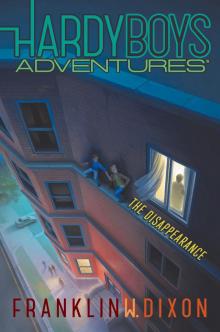 The Disappearance
The Disappearance Sea Life Secrets
Sea Life Secrets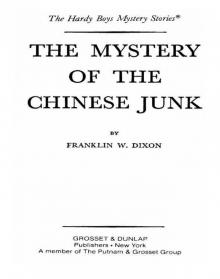 The Mystery of the Chinese Junk
The Mystery of the Chinese Junk A Skateboard Cat-astrophe
A Skateboard Cat-astrophe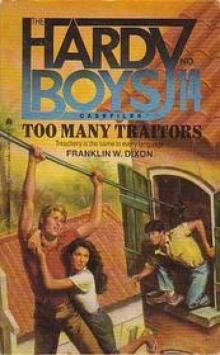 Too Many Traitors
Too Many Traitors Galaxy X
Galaxy X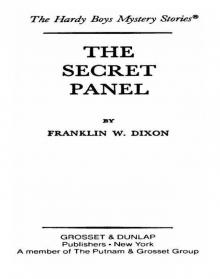 The Secret Panel
The Secret Panel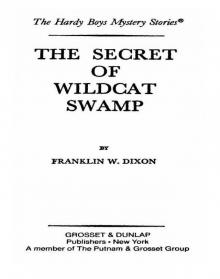 The Secret of Wildcat Swamp
The Secret of Wildcat Swamp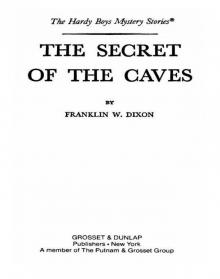 The Secret of the Caves
The Secret of the Caves The Caribbean Cruise Caper
The Caribbean Cruise Caper Without a Trace
Without a Trace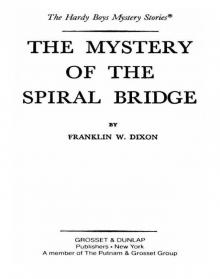 The Mystery of the Spiral Bridge
The Mystery of the Spiral Bridge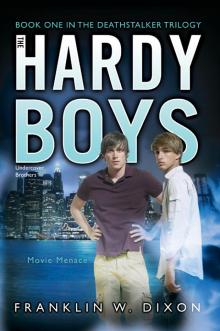 Movie Menace
Movie Menace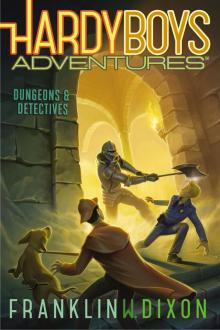 Dungeons & Detectives
Dungeons & Detectives Water-Ski Wipeout
Water-Ski Wipeout The Case of the Psychic's Vision
The Case of the Psychic's Vision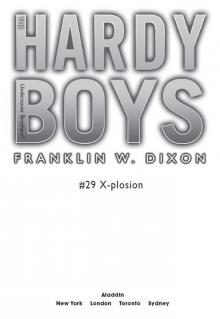 X-plosion
X-plosion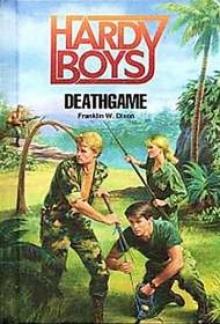 Deathgame
Deathgame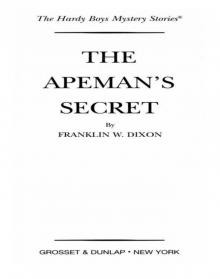 The Apeman's Secret
The Apeman's Secret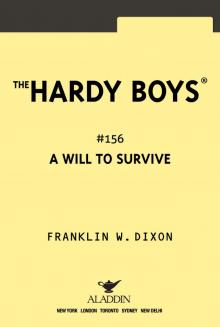 A Will to Survive
A Will to Survive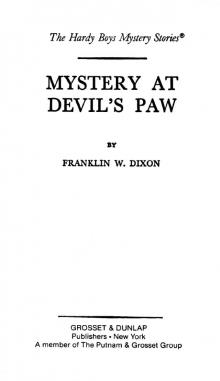 Mystery at Devil's Paw
Mystery at Devil's Paw Blood Money
Blood Money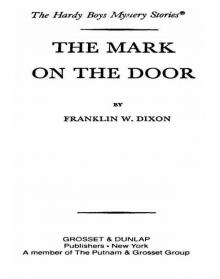 The Mark on the Door
The Mark on the Door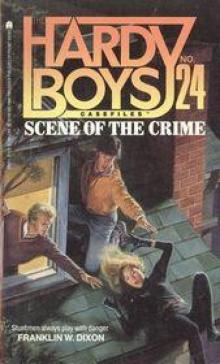 Scene of the Crime
Scene of the Crime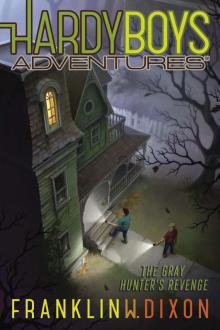 The Gray Hunter's Revenge
The Gray Hunter's Revenge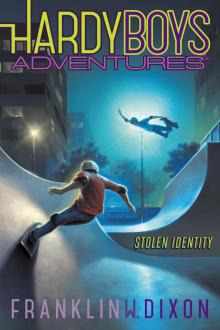 Stolen Identity
Stolen Identity The Mummy's Curse
The Mummy's Curse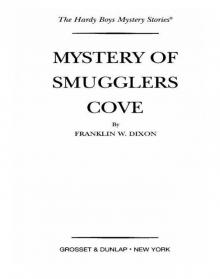 Mystery of Smugglers Cove
Mystery of Smugglers Cove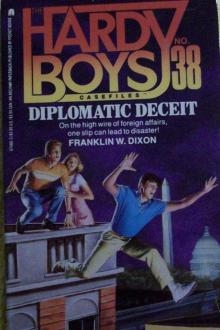 Diplomatic Deceit
Diplomatic Deceit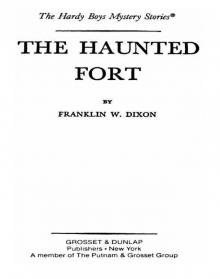 The Haunted Fort
The Haunted Fort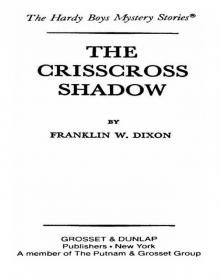 The Crisscross Shadow
The Crisscross Shadow Secret of the Red Arrow
Secret of the Red Arrow Trial and Terror
Trial and Terror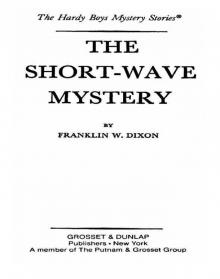 The Short-Wave Mystery
The Short-Wave Mystery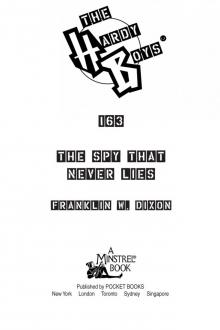 The Spy That Never Lies
The Spy That Never Lies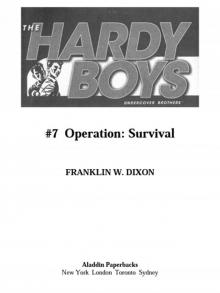 Operation: Survival
Operation: Survival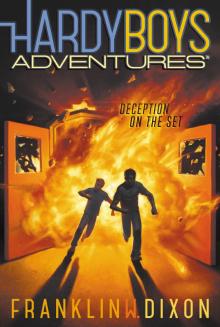 Deception on the Set
Deception on the Set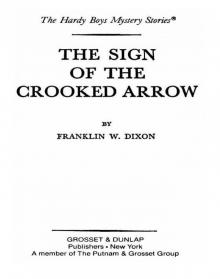 The Sign of the Crooked Arrow
The Sign of the Crooked Arrow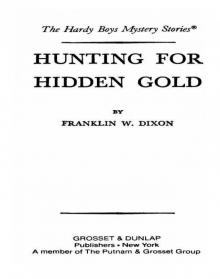 Hunting for Hidden Gold
Hunting for Hidden Gold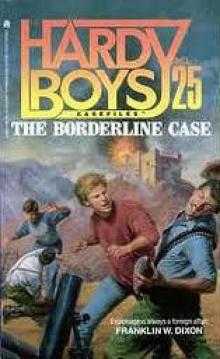 Disaster for Hire
Disaster for Hire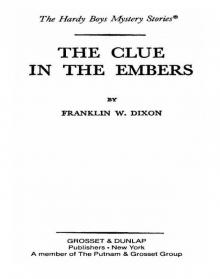 The Clue in the Embers
The Clue in the Embers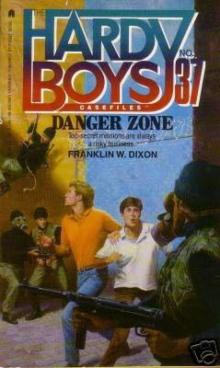 Danger Zone
Danger Zone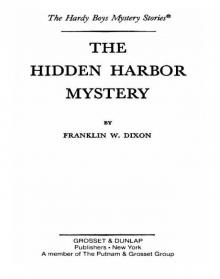 The Hidden Harbor Mystery
The Hidden Harbor Mystery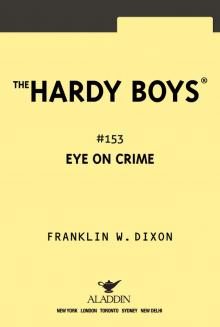 Eye on Crime
Eye on Crime A Game Called Chaos
A Game Called Chaos The Bicycle Thief
The Bicycle Thief The Missing Playbook
The Missing Playbook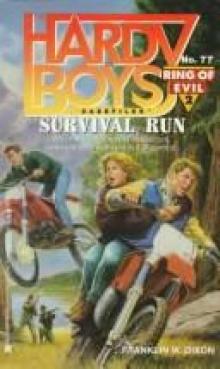 Survival Run
Survival Run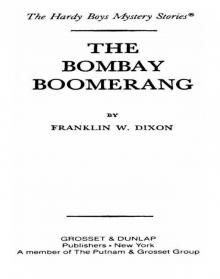 The Bombay Boomerang
The Bombay Boomerang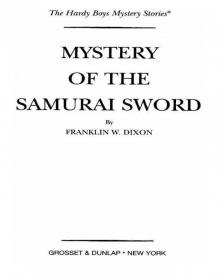 Mystery of the Samurai Sword
Mystery of the Samurai Sword Burned
Burned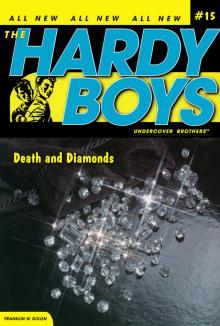 Death and Diamonds
Death and Diamonds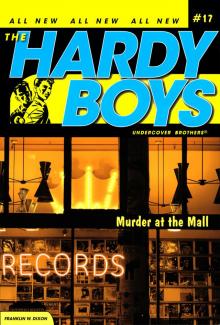 Murder at the Mall
Murder at the Mall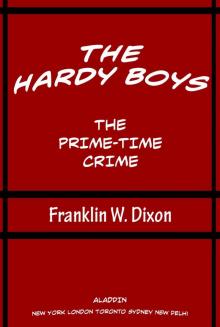 The Prime-Time Crime
The Prime-Time Crime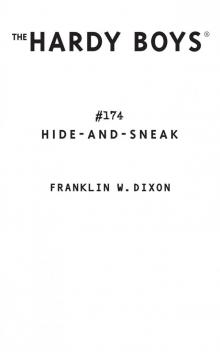 Hide-and-Sneak
Hide-and-Sneak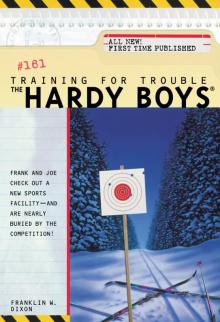 Training for Trouble
Training for Trouble Trouble in Paradise
Trouble in Paradise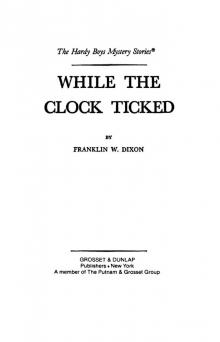 While the Clock Ticked
While the Clock Ticked The Alaskan Adventure
The Alaskan Adventure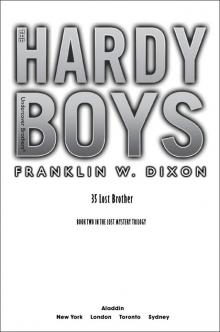 The Lost Brother
The Lost Brother Tunnel of Secrets
Tunnel of Secrets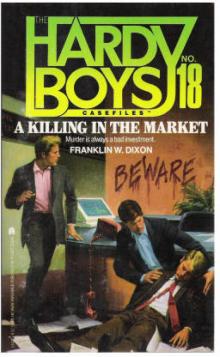 A Killing in the Market
A Killing in the Market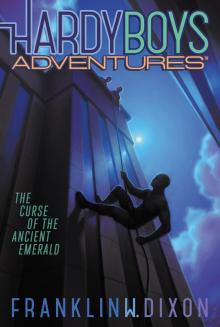 The Curse of the Ancient Emerald
The Curse of the Ancient Emerald The Arctic Patrol Mystery
The Arctic Patrol Mystery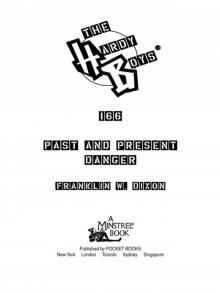 Past and Present Danger
Past and Present Danger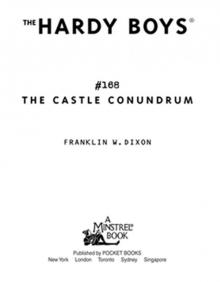 The Castle Conundrum (Hardy Boys)
The Castle Conundrum (Hardy Boys)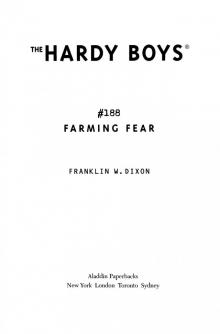 Farming Fear
Farming Fear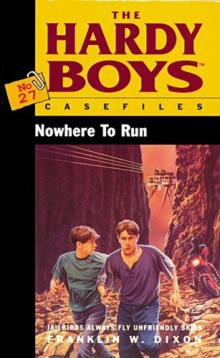 Nowhere to Run
Nowhere to Run The Secret of the Soldier's Gold
The Secret of the Soldier's Gold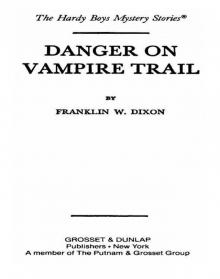 Danger on Vampire Trail
Danger on Vampire Trail The Lure of the Italian Treasure
The Lure of the Italian Treasure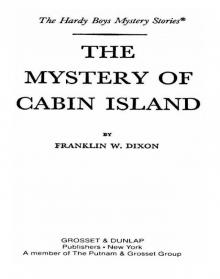 The Mystery of Cabin Island
The Mystery of Cabin Island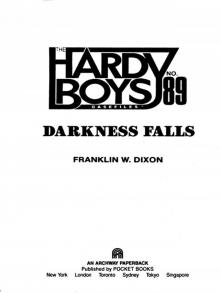 Darkness Falls
Darkness Falls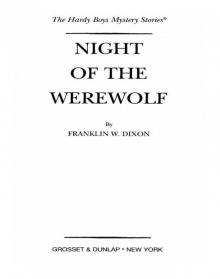 Night of the Werewolf
Night of the Werewolf Danger in the Extreme
Danger in the Extreme The Lazarus Plot
The Lazarus Plot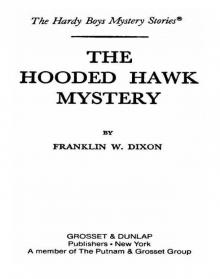 The Hooded Hawk Mystery
The Hooded Hawk Mystery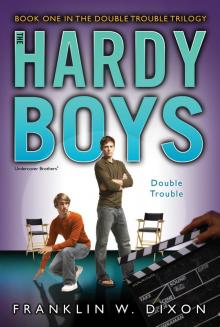 Double Trouble
Double Trouble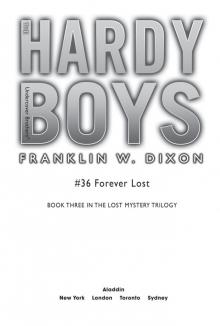 Forever Lost
Forever Lost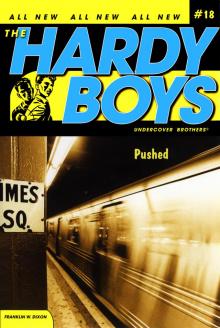 Pushed
Pushed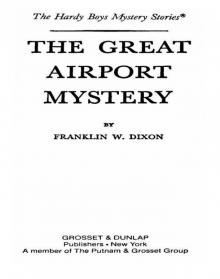 The Great Airport Mystery
The Great Airport Mystery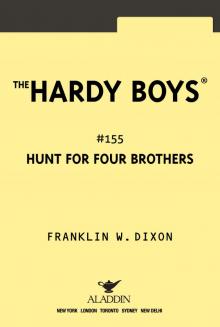 The Hunt for Four Brothers
The Hunt for Four Brothers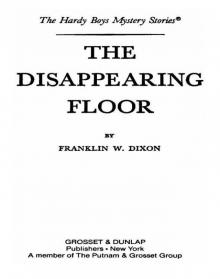 The Disappearing Floor
The Disappearing Floor Motocross Madness
Motocross Madness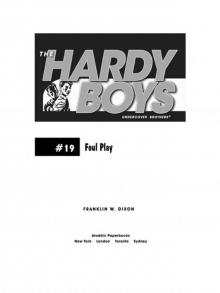 Foul Play
Foul Play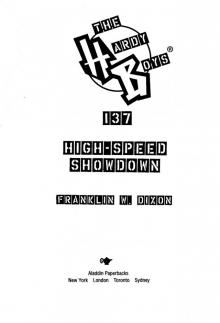 High-Speed Showdown
High-Speed Showdown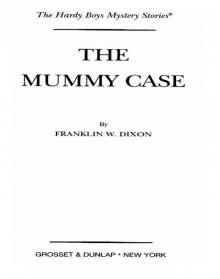 The Mummy Case
The Mummy Case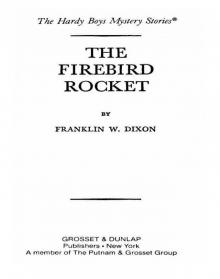 The Firebird Rocket
The Firebird Rocket Trouble in Warp Space
Trouble in Warp Space Ship of Secrets
Ship of Secrets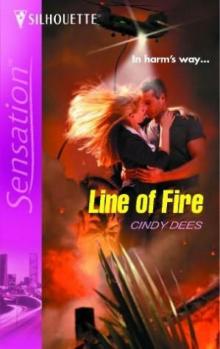 Line of Fire
Line of Fire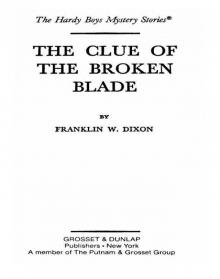 The Clue of the Broken Blade
The Clue of the Broken Blade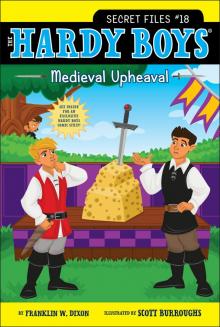 Medieval Upheaval
Medieval Upheaval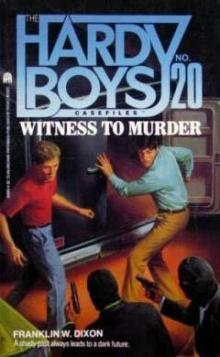 Witness to Murder
Witness to Murder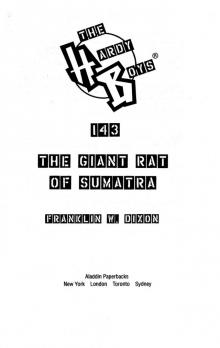 The Giant Rat of Sumatra
The Giant Rat of Sumatra Attack of the Bayport Beast
Attack of the Bayport Beast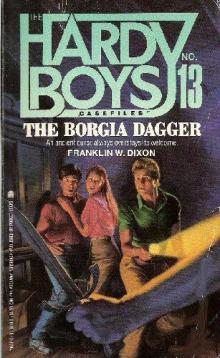 The Borgia Dagger
The Borgia Dagger Scavenger Hunt Heist
Scavenger Hunt Heist No Way Out
No Way Out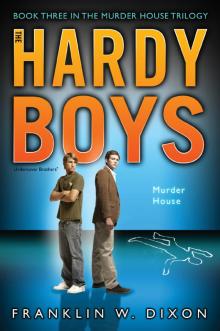 Murder House
Murder House The X-Factor
The X-Factor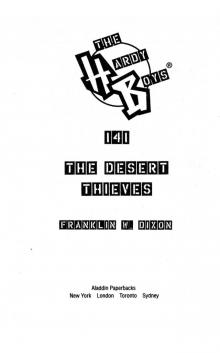 The Desert Thieves
The Desert Thieves Mystery of the Phantom Heist
Mystery of the Phantom Heist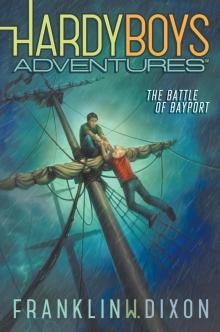 The Battle of Bayport
The Battle of Bayport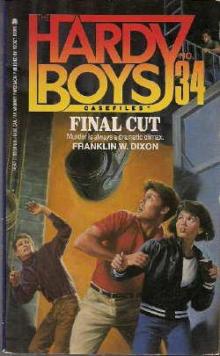 Final Cut
Final Cut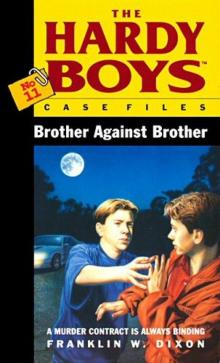 Brother Against Brother
Brother Against Brother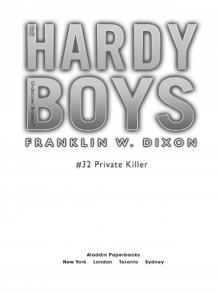 Private Killer
Private Killer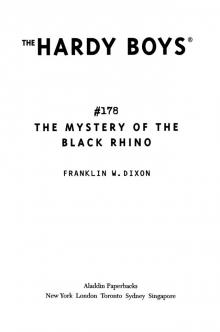 The Mystery of the Black Rhino
The Mystery of the Black Rhino Feeding Frenzy
Feeding Frenzy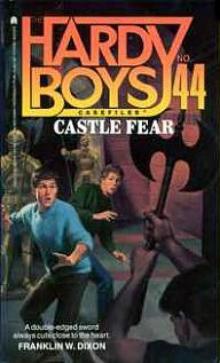 Castle Fear
Castle Fear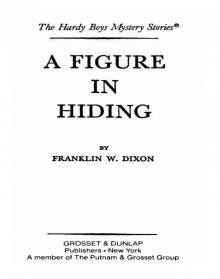 A Figure in Hiding
A Figure in Hiding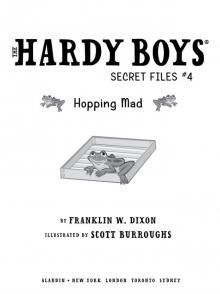 Hopping Mad
Hopping Mad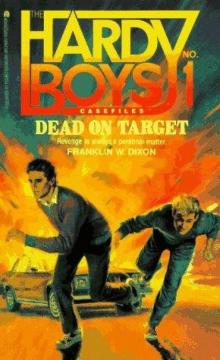 Dead on Target
Dead on Target Skin and Bones
Skin and Bones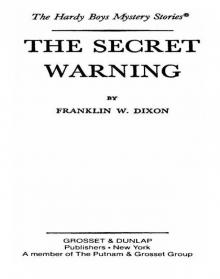 The Secret Warning
The Secret Warning Flesh and Blood
Flesh and Blood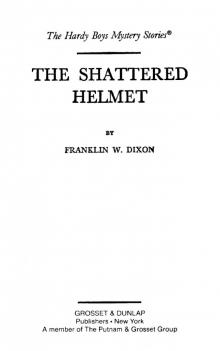 The Shattered Helmet
The Shattered Helmet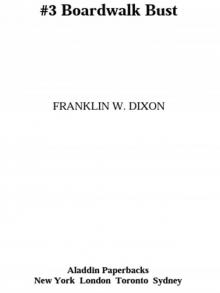 Boardwalk Bust
Boardwalk Bust Terror at High Tide
Terror at High Tide In Plane Sight
In Plane Sight The London Deception
The London Deception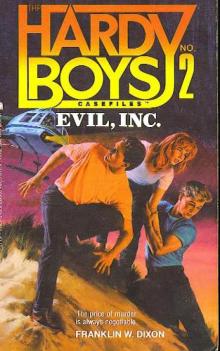 Evil, Inc.
Evil, Inc. Deprivation House
Deprivation House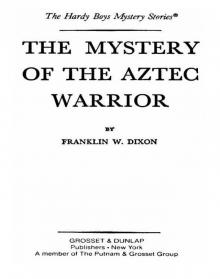 The Mystery of the Aztec Warrior
The Mystery of the Aztec Warrior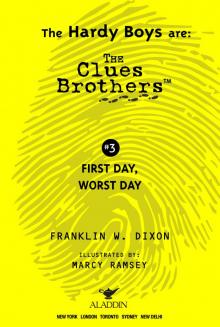 First Day, Worst Day
First Day, Worst Day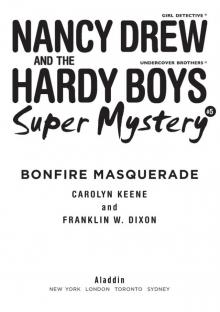 Bonfire Masquerade
Bonfire Masquerade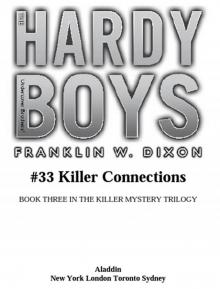 Killer Connections
Killer Connections Strategic Moves
Strategic Moves Warehouse Rumble
Warehouse Rumble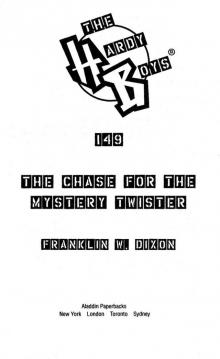 The Chase for the Mystery Twister
The Chase for the Mystery Twister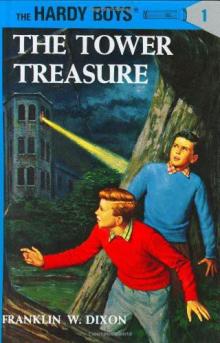 The Tower Treasure thb-1
The Tower Treasure thb-1 The Children of the Lost
The Children of the Lost The Last Laugh
The Last Laugh Trick-or-Trouble
Trick-or-Trouble Perfect Getaway
Perfect Getaway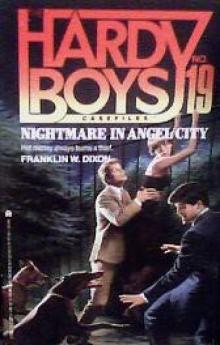 Nightmare in Angel City
Nightmare in Angel City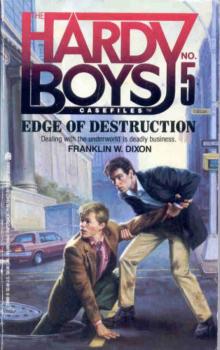 Edge of Destruction
Edge of Destruction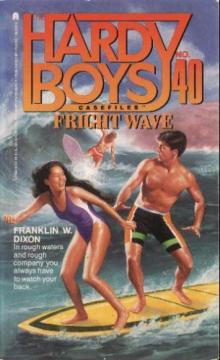 Fright Wave
Fright Wave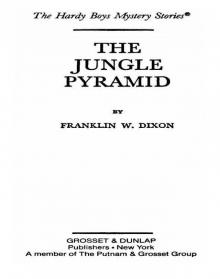 The Jungle Pyramid
The Jungle Pyramid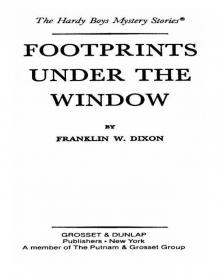 Footprints Under the Window
Footprints Under the Window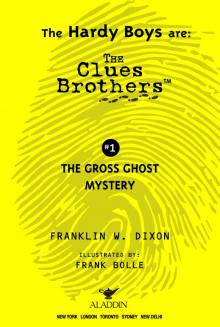 The Gross Ghost Mystery
The Gross Ghost Mystery A Monster of a Mystery
A Monster of a Mystery House Arrest
House Arrest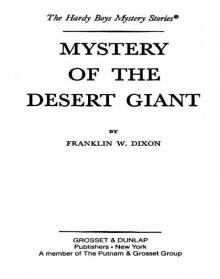 Mystery of the Desert Giant
Mystery of the Desert Giant Talent Show Tricks
Talent Show Tricks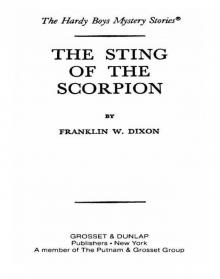 The Sting of the Scorpion
The Sting of the Scorpion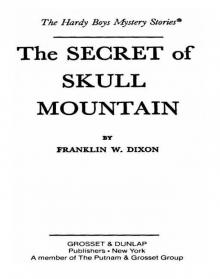 The Secret of Skull Mountain
The Secret of Skull Mountain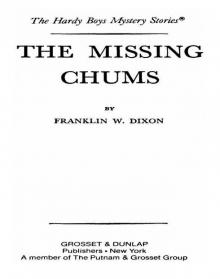 The Missing Chums
The Missing Chums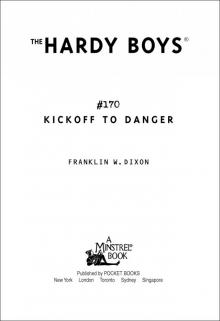 Kickoff to Danger
Kickoff to Danger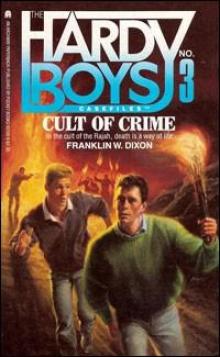 Cult of Crime
Cult of Crime Running on Fumes
Running on Fumes Martial Law
Martial Law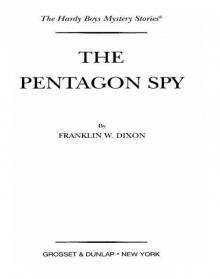 The Pentagon Spy
The Pentagon Spy Hazed
Hazed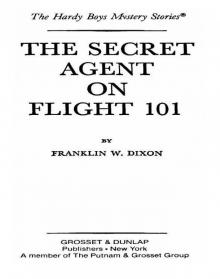 The Secret Agent on Flight 101
The Secret Agent on Flight 101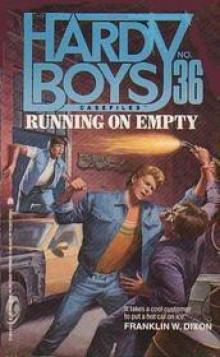 Running on Empty
Running on Empty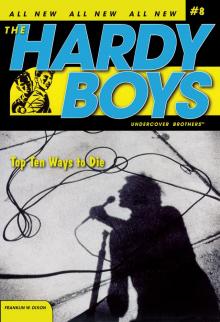 Top Ten Ways to Die
Top Ten Ways to Die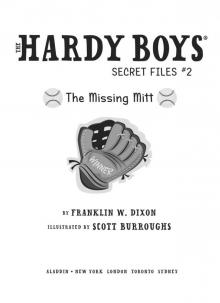 The Missing Mitt
The Missing Mitt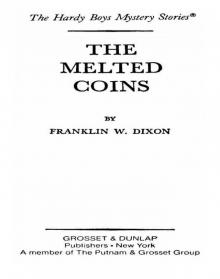 The Melted Coins
The Melted Coins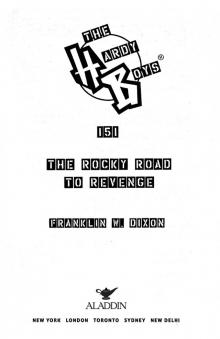 The Rocky Road to Revenge
The Rocky Road to Revenge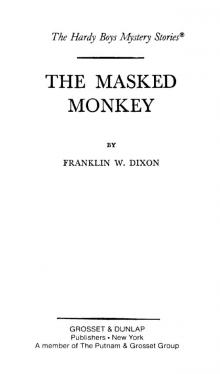 The Masked Monkey
The Masked Monkey Lost in Gator Swamp
Lost in Gator Swamp Extreme Danger
Extreme Danger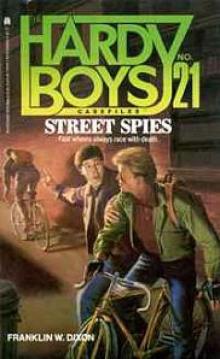 Street Spies
Street Spies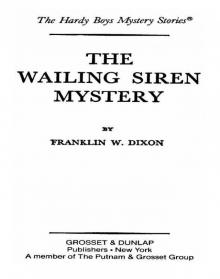 The Wailing Siren Mystery
The Wailing Siren Mystery The Dangerous Transmission
The Dangerous Transmission Hurricane Joe
Hurricane Joe The Crisscross Crime
The Crisscross Crime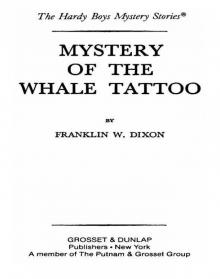 Mystery of the Whale Tattoo
Mystery of the Whale Tattoo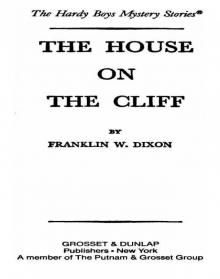 The House on the Cliff
The House on the Cliff Camping Chaos
Camping Chaos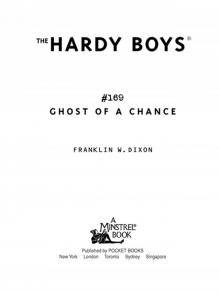 Ghost of a Chance
Ghost of a Chance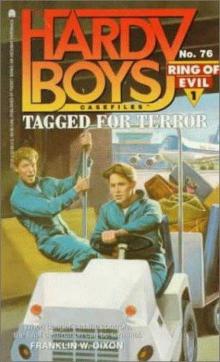 Tagged for Terror
Tagged for Terror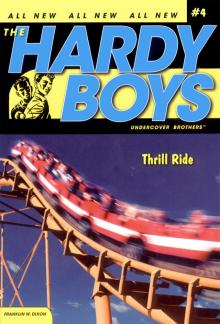 Thrill Ride
Thrill Ride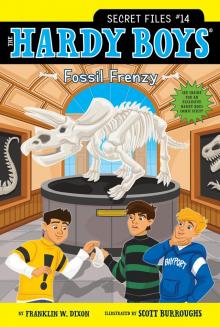 Fossil Frenzy
Fossil Frenzy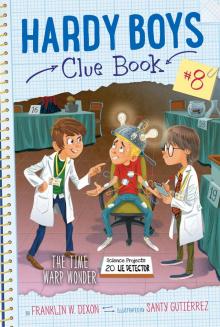 The Time Warp Wonder
The Time Warp Wonder Ghost Stories
Ghost Stories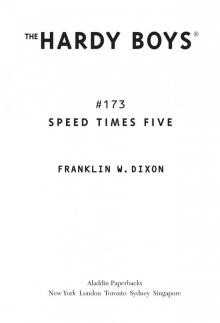 Speed Times Five
Speed Times Five What Happened at Midnight
What Happened at Midnight Three-Ring Terror
Three-Ring Terror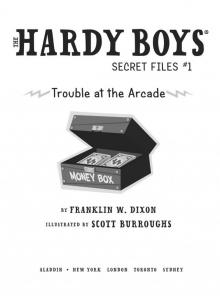 Trouble at the Arcade
Trouble at the Arcade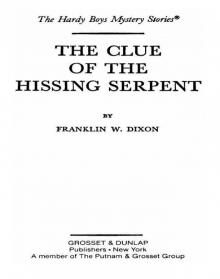 The Clue of the Hissing Serpent
The Clue of the Hissing Serpent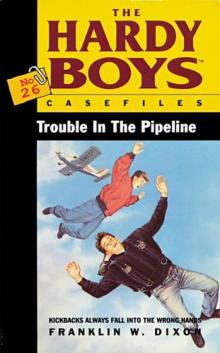 Trouble in the Pipeline
Trouble in the Pipeline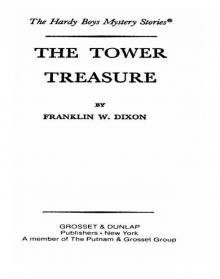 The Tower Treasure
The Tower Treasure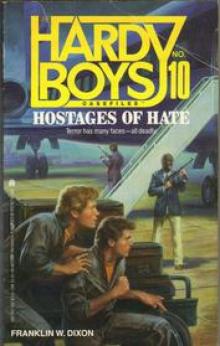 Hostages of Hate
Hostages of Hate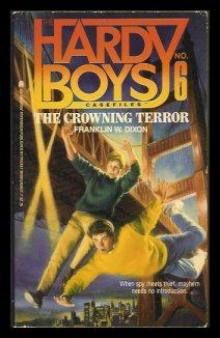 The Crowning Terror
The Crowning Terror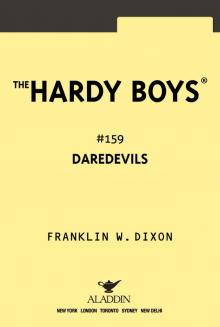 Daredevils
Daredevils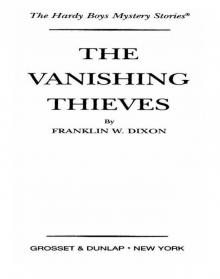 The Vanishing Thieves
The Vanishing Thieves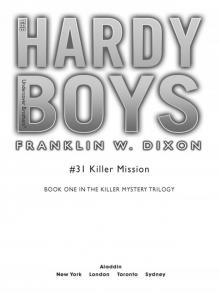 Killer Mission
Killer Mission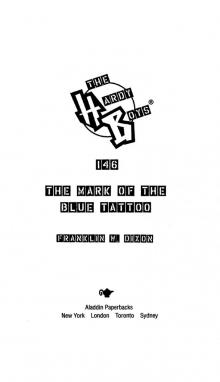 The Mark of the Blue Tattoo
The Mark of the Blue Tattoo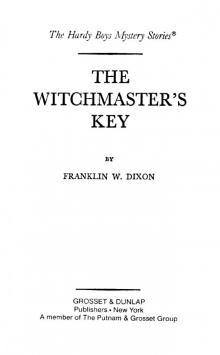 The Witchmaster's Key
The Witchmaster's Key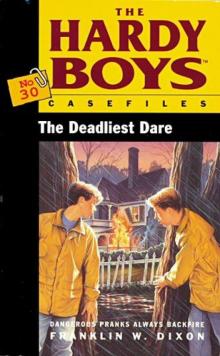 The Deadliest Dare
The Deadliest Dare Peril at Granite Peak
Peril at Granite Peak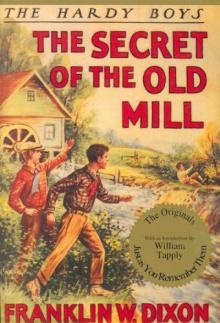 The Secret Of The Old Mill thb-3
The Secret Of The Old Mill thb-3 Rocky Road
Rocky Road The Demolition Mission
The Demolition Mission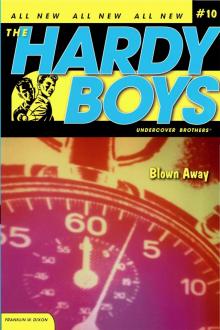 Blown Away
Blown Away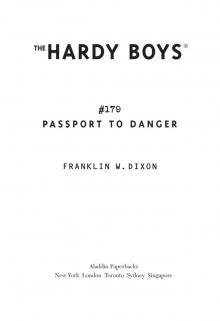 Passport to Danger
Passport to Danger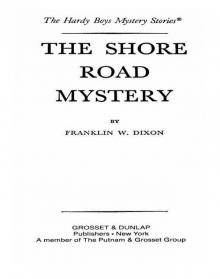 The Shore Road Mystery
The Shore Road Mystery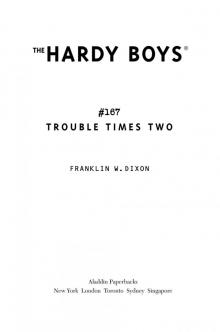 Trouble Times Two
Trouble Times Two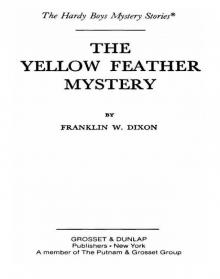 The Yellow Feather Mystery
The Yellow Feather Mystery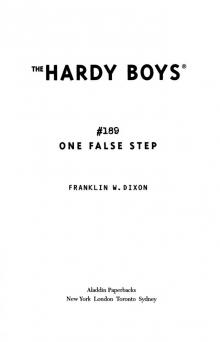 One False Step
One False Step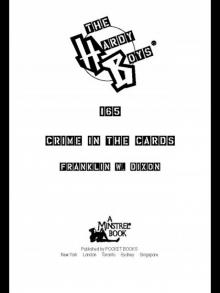 Crime in the Cards
Crime in the Cards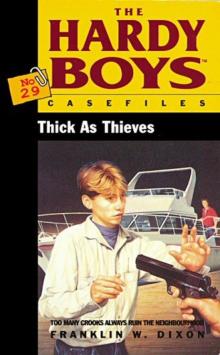 Thick as Thieves
Thick as Thieves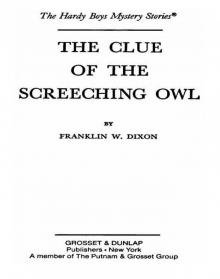 The Clue of the Screeching Owl
The Clue of the Screeching Owl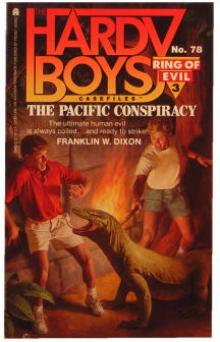 The Pacific Conspiracy
The Pacific Conspiracy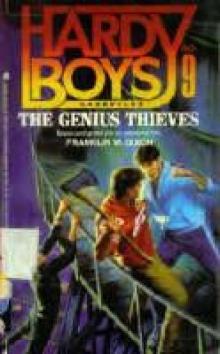 The Genius Thieves
The Genius Thieves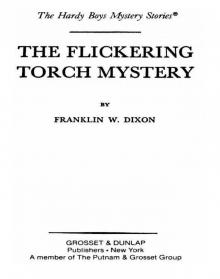 The Flickering Torch Mystery
The Flickering Torch Mystery Into Thin Air
Into Thin Air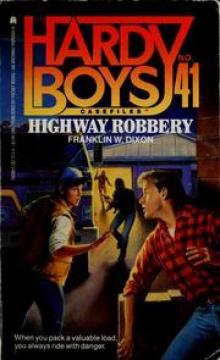 Highway Robbery
Highway Robbery Deadfall
Deadfall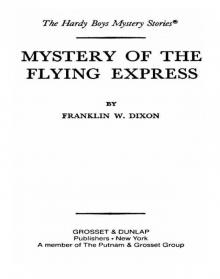 Mystery of the Flying Express
Mystery of the Flying Express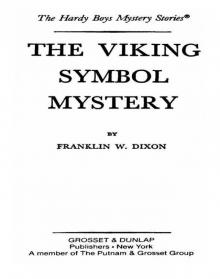 The Viking Symbol Mystery
The Viking Symbol Mystery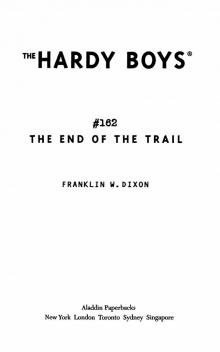 The End of the Trail
The End of the Trail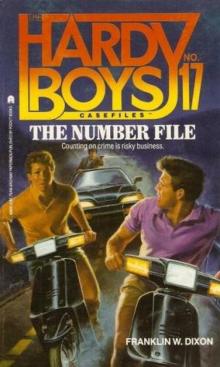 The Number File
The Number File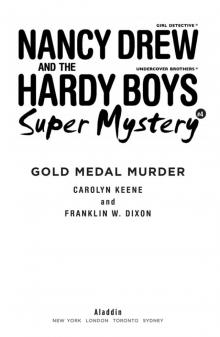 Gold Medal Murder
Gold Medal Murder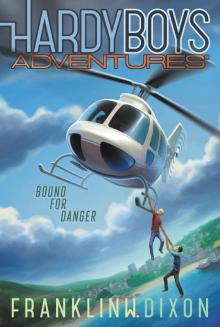 Bound for Danger
Bound for Danger Collision Course
Collision Course The Madman of Black Bear Mountain
The Madman of Black Bear Mountain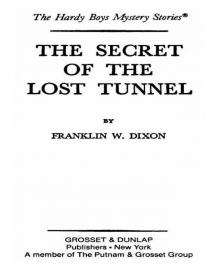 The Secret of the Lost Tunnel
The Secret of the Lost Tunnel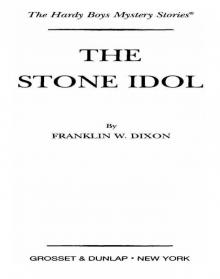 The Stone Idol
The Stone Idol The Secret of Pirates' Hill
The Secret of Pirates' Hill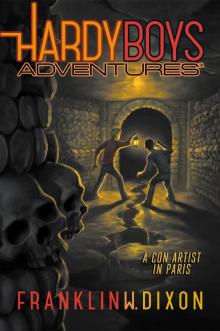 A Con Artist in Paris
A Con Artist in Paris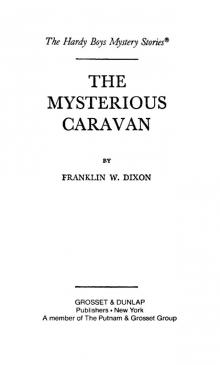 The Mysterious Caravan
The Mysterious Caravan The Secret of Sigma Seven
The Secret of Sigma Seven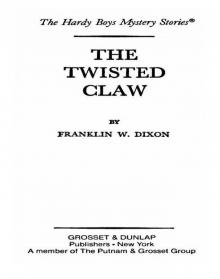 The Twisted Claw
The Twisted Claw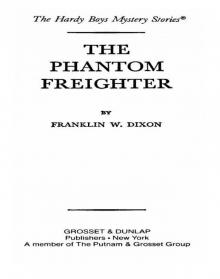 The Phantom Freighter
The Phantom Freighter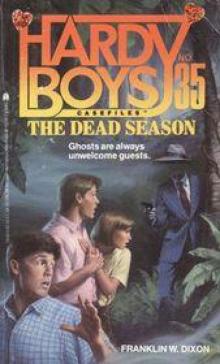 The Dead Season
The Dead Season The Video Game Bandit
The Video Game Bandit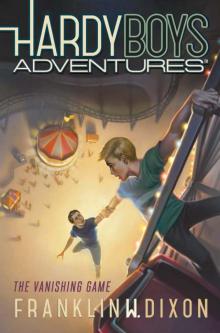 The Vanishing Game
The Vanishing Game Typhoon Island
Typhoon Island